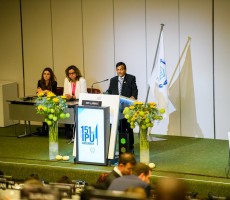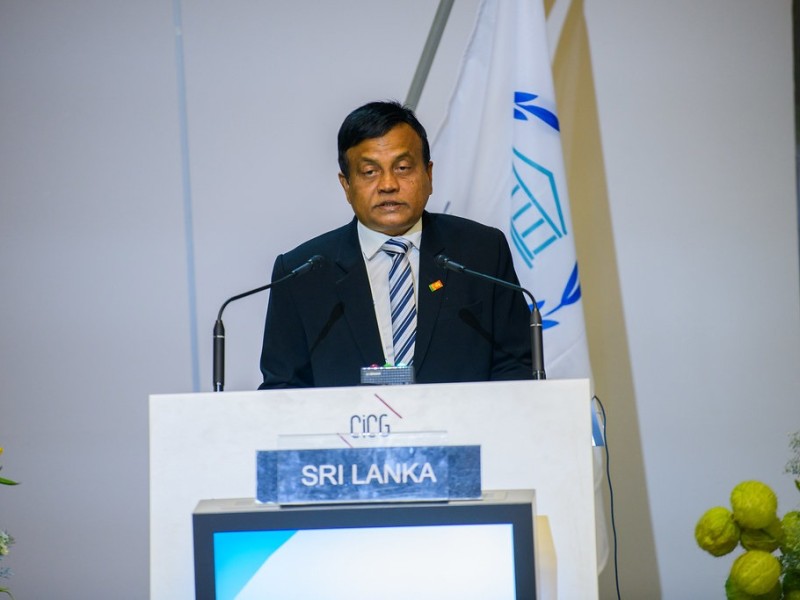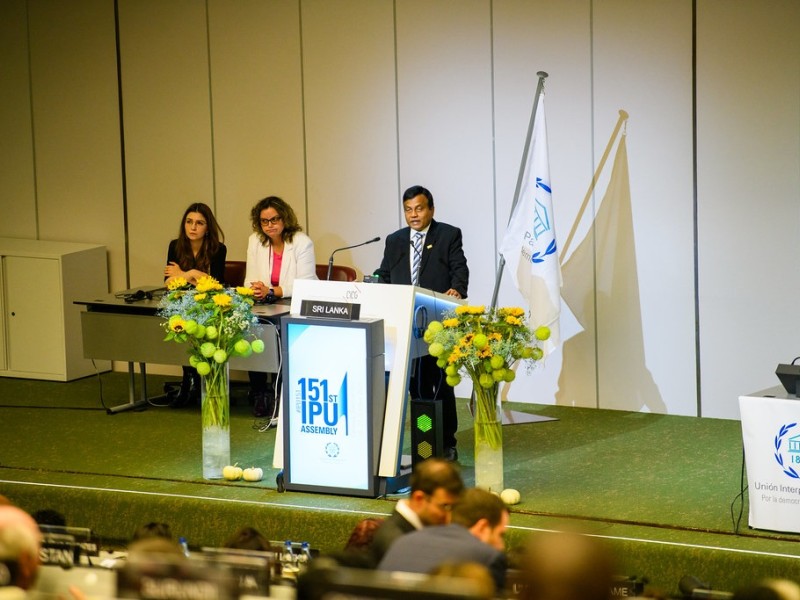

Hon. Speakers,
Hon. Members of Parliament,
distinguished guests,
ladies and gentlemen,
To begin with, I feel deeply honored and privileged to be in this wonderful city, the second biggest city of Switzerland, representing my delegation. It is a great pleasure for me to address the 151st IPU Assembly today. I wish to thank the Honorable Chairpersons and Speakers, the Honorable Members of the IPU, and the organizers of this event for their tremendous efforts in ensuring the success of this prestigious gathering. Today’s IPU Assembly provides a timely platform for strengthening cooperation among democracies.
Ladies and Gentlemen,
Let me elaborate on my speech on the topic of upholding humanitarian norms and supporting humanitarian action in times of crisis.
According to the United Nations, the main fundamentals of humanitarian action are neutrality, impartiality, humanity, and independence. Humanitarian action plays a critical role in crisis because it involves life-saving assistance, protecting human dignity and rights, distributing food, shelter, and health services, as well as supporting long-term development initiatives to help communities rebuild and become more resilient to future challenges.
We all know that, especially when a crisis occurs in a developing country, both national and international humanitarian actions play a crucial role. International humanitarian action, as a cornerstone of global crisis response, brings together coordinated efforts by governments, international organizations, non-governmental organizations, and communities to provide vital assistance to populations affected by conflicts, natural disasters, health emergencies, and other humanitarian challenges.
Ladies and Gentlemen,
Moving from the general to the specific, Now I would like to draw your attention to the experience of Sri Lanka.
Sri Lanka’s history provides clear examples of why humanitarian norms and actions are so vital. Over the decades, our country has faced crises arising from conflict, natural disasters, health emergencies, and economic shocks.
In 2004, for the first time we faced Tsunami. It was the worst natural disaster in Sri Lanka’s history. Around thirty-five thousand (35,000) people died or went missing, hundred and ten thousand (110,000) houses were damaged.
The government, together with international and non-governmental organizations, as well as the local community supported and provided humanitarian assistance. The tsunami was a tragic event, but it also taught us an important lesson: the need to be better prepared for humanitarian action in the face of natural disasters.
Sri Lanka’s civil war, which lasted nearly three decades from 1983 until 2009, between the Government of Sri Lanka and the Liberation Tigers of Tamil Elam (LTTE), was another defining humanitarian crisis. It caused large-scale displacement, loss of lives, and destruction of infrastructure.
Most recently, the economic crisis of 2022 tested us in a new dimension. Shortages of fuel, medicine, and essential goods affected almost every household.
By 2023, some stabilization was achieved through IMF debt restructuring, but many families continued to struggle. demonstrating the ongoing need for humanitarian action.
Thus, in Sri Lanka, the government, international organizations, civil society groups, community organizations, and ordinary citizens have all contributed in different ways to implement humanitarian action across various crisis, situations.
Ladies and Gentlemen,
Presently, we as the government of Sri Lanka are trying to move forward by achieving reconciliation among different ethnic communities. For the first time in history, our government has been elected by all the communities in the country. We have been voted by the Tamils in the North as well. We have a great responsibility to fulfill our mandate. We have proactively taken steps to achieve reconciliation. Further, we have identified corruption and drug trafficking also as issues to be immediately addressed. With the primary focus of upholding Rule of Law, we are in a process of addressing these issues as well.
It is important to highlight that, in our experience, while immediate relief measures such as food, shelter, clothing, clean water, and medical facilities are critical during crisis, it is equally essential to address the long-term needs of affected communities — to help them cope with trauma and begin rebuilding their lives. Further, Humanitarian action must not stop at immediate response. To achieve a meaningful and sustainable impact, humanitarian workers must also engage in longer-term planning to ensure durable and sustainable solutions that support recovery, development, and resilience.
As parliamentarians, we have a responsibility to support humanitarian actions and to uphold humanitarian norms. We must ensure that our legislatures enact and update laws that codify humanitarian principles, clarify institutional responsibilities, and protect humanitarian rights. Furthermore, parliamentary committees should actively monitor the distribution and management of relief to guarantee fairness, transparency, and accountability.
To conclude my speech, I firmly believe that in a diverse country like Sri Lanka, we are bound to follow the UN fundamentals of humanitarian action. These principles are essential for us to achieve national goals, promote social welfare, uphold justice, and ensure prosperity for our people.
Thank you




